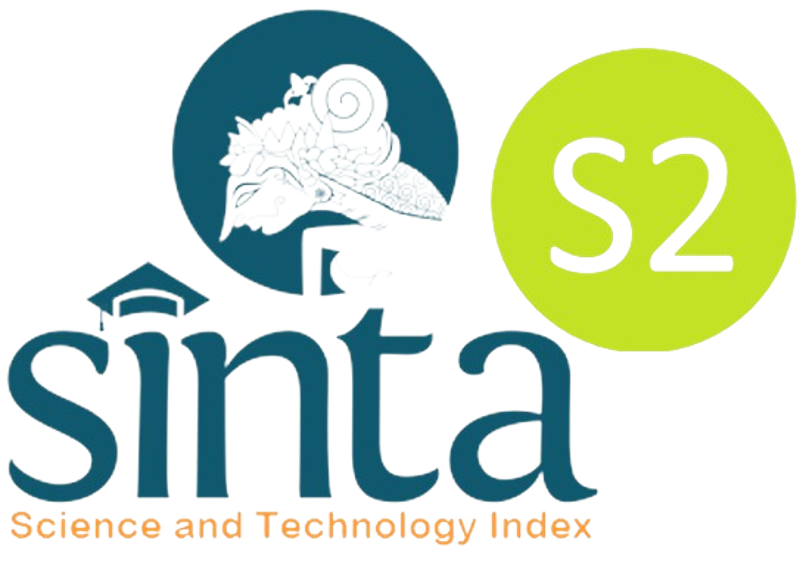STRATEGI PENGEMBANGAN KETERAMPILAN PROBLEM SOLVING DALAM KONTEKS MEMBANGUN DISASTER RESILIENCE
Abstract
This study will provide an alternative strategy that can be done to improve problem solving skills, on children in the context of building the disaster resilience which are integrated in the learning process of science through community learning strategy. Qualitative and psychosocial research ethnography was conducted on 34 students in the District of the West Coast as the area with the most potential to experience the devastating earthquake and tsunami. Data were obtained using a strategy of focused group discussions and depth interviews with elements of the school community which are teachers, and parents. The purpose of the involvement of the school community was to get the data in understanding the resilience of students. The research proved that resilience is at the levels which are still low and this condition further provide recommendations related to alternative strategies for the development of higher level thinking skills for students in disaster prone areas.
Penelitian ini akan memberikan strategi alternatif yang dapat dilakukan untuk meningkatkan ketrampilan memecahkan masalah (problem solving), pada anak-anak dalam konteks membangun resiliensi bencana (disaster resilience) yang terintegrasi dalam proses pembelajaran sains melalui strategi learning community. Penelitian kualitatif dengan tipe psikososial etnografi ini dilakukan terhadap 34 orang siswa di Kabupaten Pesisir Barat sebagai daerah yang paling potensial mengalami bencana gempa bumi dan tsunami. Data penelitian diperoleh menggunakan strategi focused group discussion dan depth interview terhadap unsur komunitas sekolah yaitu guru, dan orang tua. Tujuan dari terlibatnya komunitas sekolah untuk mendapatkan data dalam memahami resilience siswa. Hasil penelitian membuktikan bahwa resilience berada pada taraf yang masih rendah dan kondisi ini selanjutnya memberikan rekomendasi terkait strategi alternatif untuk pengembangan keterampilan berpikir tingkat tinggi bagi siswa di daerah rawan bencana.
Kata kunci: keterampilan problem solving, disaster resilience, siswa sekolah dasar, komunitas sekolah
Full Text:
PDFReferences
Appleton,Ken. Problem Solving in Science Lessons : How Students Explore The Problem Space. Central Queensland University. Vol. 25(4).
Barak, M., Ben-Chaim D., & Zoller U. 2007. Purposely Teaching for the Promotion of Higher-order Thinking Skills: A Case of Critical Thinking. Res Sci Educ, 37: 353369.
Bassham, G., Irwin, W., Nardone, H., & Wallace, J. M. 2007. Critical thinking: a student introduction. 2nd Edition. Singapore: McGraw-Hill Company, Inc.
Costa, Arthur L. 1988. Developing Minds A Resource Book for Teaching Thinking. California : Association for Supervision and Curriculum Development.
Chen, C.Y & Lee, W.C. 2012. Damages to school infrastructure and development to disaster prevention education strategy after Typhoon Morakot in Taiwan. Disaster Prevention and Management, Vol. 21 Iss: 5 pp. 541 555
Galbreath, J. 1999. Preparing the 21st Century Worker: The Link Between Computer Based Technology and Future Skill Sets. Educational Technology. Desember: 14-22.
Jones, J. L., Rotabi, K. S., Levy, J. K., & Gray, L. A. 2012. An Interdisciplinary Approach to Developing Innovative Teaching Strategies For Responding to Global Disaster Disasters. Advances in Social Work, 13(2): 279-290.
Lubezki, A., Dori, Y. J., & Zoller, U. 2004. Hocspromoting assessment of students performanceon environment-related undergraduate chemistry. Chemistry education research and practice. 5(2).175-184.
Norman and Schmidt.1992. The Psychological Basis of Problem Based Learning. A Review of The Evidence. Vol. 67.
Peraturan Menteri Pendidikan dan Kebudayaan No.67 Tahun 2013. Tentang kerangka dasar dan struktur Kurikulum Sekolah Dasar/Madrasah Ibtidaiyah. Rindell, A. J. A. 1999. Applying Inquiry-Based and Cooperative Group Learning Strategies to Promote Critical Thinking. Journal of College Science Teaching (JCST) 28(3): 203-207
Rutherford dan Ahlgren. 1990. Science for All Americans. NY: Oxford University Press.
Schmidt. 1983. Problem Based Learning : Rationale and Description. Wiley Online Library
Staci M. Zolkoski, Lyndal M. Bullock. 2012. Resilience in children and youth: A review. Children and youth review 34 (2012)2295-2303
Tsapartis, G. & Zoller, U. 2003. Evaluation of higher vs. Lower-order cognitive skills-type examination in chemistry: implications for university in-class assessment and examination. U.chem.ed. 7. 50-57.
Zoller, U. 1999. Teaching tomorrows college science courses Are we getting it right? Journal of College Science Teaching, 29(6): 409414.
Zoller, U. 2001. Alternative assessment as (critical) means of facilitating HOC Spromoting teaching and learning in chemistry education. Chemical Education Research and Practice in Europe, 2(1): 917.
Refbacks
- There are currently no refbacks.
Copyright (c) 2017 Jurnal Pendidikan Progresif
View My Stats

The copyright is reserved to The Jurnal Pendidikan Progresif that is licensed under a Creative Commons Attribution-ShareAlike 4.0 International License.





